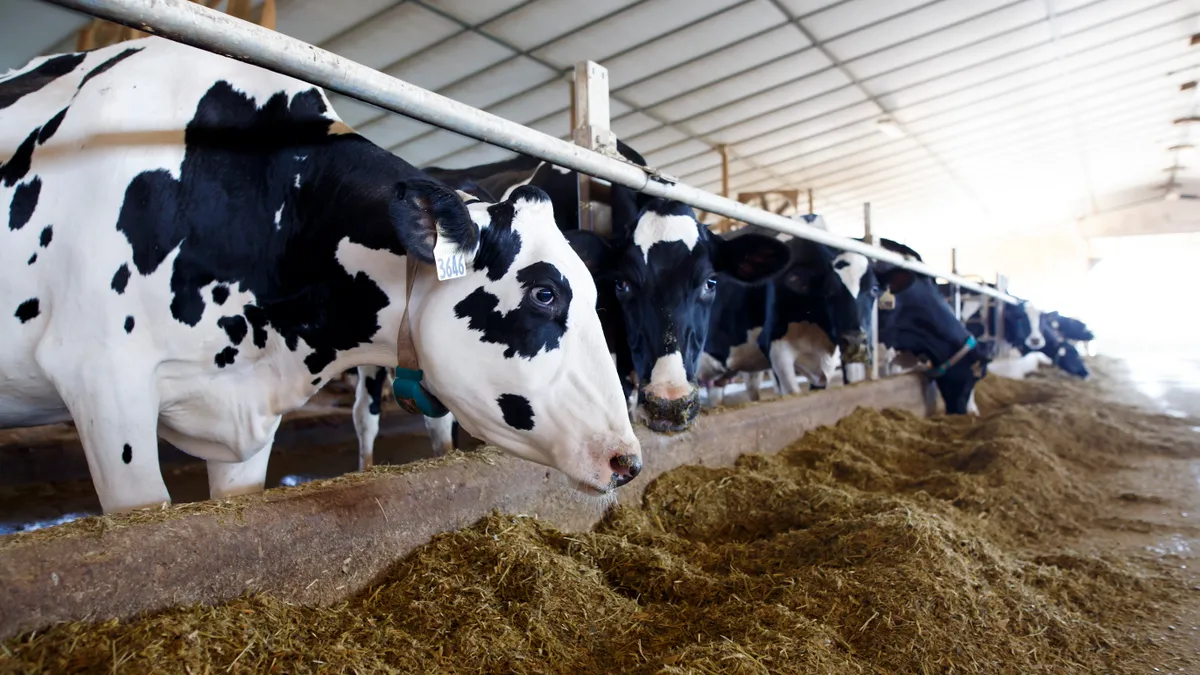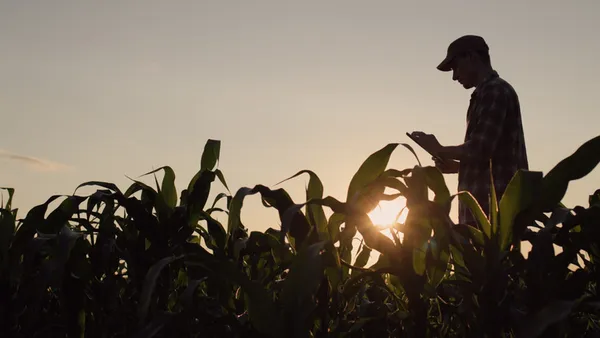Dairy cows must undergo testing for bird flu before moving between state lines, the Agriculture Department said on Wednesday, as the U.S. ramps up its response to a widening avian influenza outbreak following the discovery of viral fragments in the commercial milk supply.
The order, set to take effect April 29, requires dairy cattle to receive a negative test for the Influenza A virus at a lab within the National Animal Health Laboratory Network before interstate transport. The agency said it will provide reimbursements for testing costs.
The USDA is also requiring laboratories and state veterinarians to report all positive Influenza A results in livestock to the Animal and Plant Health Inspection Service.
“The novel movement of H5N1 between wild birds and dairy cows requires further testing and time to develop a critical understanding to support any future courses of action,” the department said in a news release. “This Federal Order is critical to increasing the information available for USDA.”
The action comes as more research reveals concerning details about how the virus spreads. Animal and Plant Health Inspection Service biologists last week noticed a shift in an H5N1 sample from a cow in Kansas that “could indicate that the virus has an adaptation to mammals.”
The agency also confirmed that avian influenza was found in a cow that wasn't displaying any symptoms. In that case, the virus was found in a lung tissue sample, reversing a previously held theory that the virus could only be replicating in the udder, not the whole body.
The Food and Drug Administration on Wednesday said it identified the presence of avian influenza in pasteurized milk samples, but it still considers the commercial milk supply safe.
The virus is contagious and deadly to poultry and wild birds, but the effects on cattle have not been as severe. The USDA said it continues to see little to no mortality and signs of recovery in affected dairy herds.
The interstate movement of animals infected with the virus is already prohibited, the USDA said, but given the recent genotype detections that pose a new risk to both poultry and livestock, the department took additional steps with the federal order.
“While we are taking this action today, it is important to remember that thus far, we have not found changes to the virus that would make it more transmissible to humans and between people,” the USDA said in a release.
If a cow tests positive, the owner will be required to provide epidemiological information, including animal movement tracing, according to the USDA. These steps are immediately required for lactating cows, with more guidance expected to be released soon for other classes of dairy cattle.











